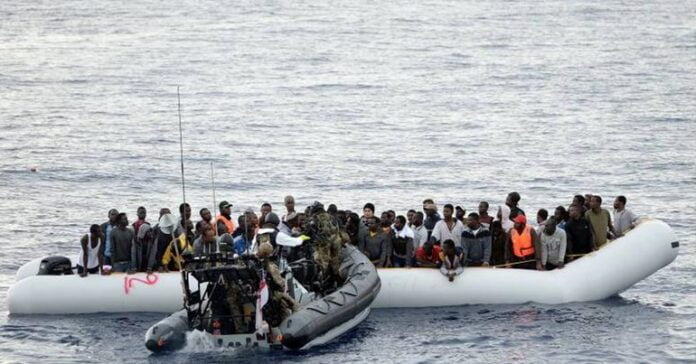In a decisive move on his first full day as Prime Minister, Sir Keir Starmer has officially ended the controversial Rwanda deportation scheme. The Labour leader, staying true to his party’s manifesto pledge, declared the scheme “dead and buried,” marking a significant policy shift from the previous Conservative government.
A Firm Stance Against Ineffective Policies
The Rwanda deportation plan, aimed at sending migrants arriving illegally in the UK to Rwanda, was introduced by the former Conservative government but faced numerous legal and operational challenges. The scheme, which cost taxpayers approximately £310 million without ever seeing a single flight take off, was criticised for its ineffectiveness as a deterrent and for its high financial burden.
At his inaugural press conference as Prime Minister, Starmer emphasised, “The Rwanda scheme was dead and buried before it started.” He pointed out that the scheme would have impacted “less than 1%” of small boat arrivals, questioning its practicality and efficiency. Starmer’s decision to scrap the plan underscores his commitment to more substantive and effective immigration reforms.
Financial and Human Implications
The financial repercussions of terminating the scheme are still undetermined, as is the future of the 52,000 migrants who were slated for deportation under the plan. This abrupt policy reversal highlights the contentious nature of immigration strategies and the urgent need for viable solutions.
A Key Battleground for Sunak’s Government
The Rwanda scheme was a cornerstone of former Prime Minister Rishi Sunak’s administration, promoted as a solution to deter Channel crossings. Despite being a priority for Sunak, the plan was mired in legal challenges and faced significant opposition within Parliament, leading to repeated Conservative rebellions. Since its announcement by Boris Johnson two years ago, the scheme has struggled to gain traction, leaving a legacy of controversy.
Record Numbers and New Strategies
The number of people crossing the Channel in small boats has reached record levels, with 13,195 arrivals recorded by June 26, 2024, surpassing figures from the same period in the previous four years. Since 2018, nearly 120,000 individuals have made the perilous journey to the UK by this route. Starmer highlighted these statistics to underscore the scale of the problem inherited by his administration. “Look at the numbers that have come over in the first six and a bit months of this year, they are record numbers, that is the problem that we are inheriting,” he noted.
Labour’s Commitment to Tackle Illegal Migration
Illegal migration remains a top priority for the new Labour government. The party’s manifesto includes promises to curb small boat crossings by employing investigators and leveraging counter-terrorism powers to dismantle criminal smuggling networks. However, Labour has yet to fully unveil the specifics of their alternative immigration strategy, leaving room for public scrutiny and anticipation.
Concerns and Criticisms
Kevin Saunders, a former chief immigration officer and supporter of the Rwanda scheme, expressed concerns about the lack of a clear plan from Labour to address the ongoing issue of small boat crossings. Saunders mentioned that the scheme had created a sense of unease among migrants in northern France, causing some to flee to the Republic of Ireland to avoid potential deportation to Rwanda. He predicted that the UK could see “between 50 and 60,000” illegal migrants crossing the Channel this year, highlighting the urgent need for a robust and effective policy.
A New Era in Immigration Policy
As Prime Minister Starmer takes the reins, his administration faces the daunting task of developing and implementing a new immigration policy that effectively addresses illegal migration while upholding humanitarian principles. The end of the Rwanda deportation scheme marks a significant shift, but the journey towards a comprehensive solution is just beginning. The nation watches closely as Labour’s new strategies unfold, hopeful for a balanced approach that ensures security, fairness, and compassion.
Further Reading




